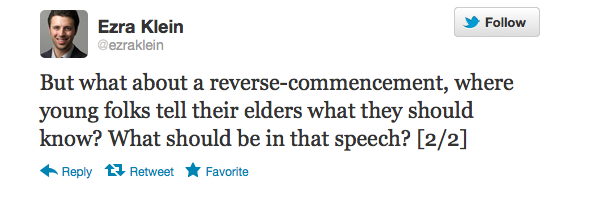A few months ago, I authored a column here touting the extraordinary accomplishments of Louisiana Governor Bobby Jindal in enacting perhaps the most sweeping piece of education reform in the country. Part of what made the reform possible, I noted at the time, was the relative weakness of teacher unions in the Pelican State:
The laws passed by the Louisiana legislature last week read like a conservative education reformer’s wish list. Teacher tenure, which previously required three years of employment, will now be contingent on educators receiving a “highly effective” rating in five out of six consecutive years. Back-to-back “ineffective” ratings will be a firing offense. Seniority will no longer be a dominant factor in layoff decisions. Decisions about teacher employment and pay will largely devolve to principals and superintendents (they had previously been dominated by local school boards), allowing them to act with the dispatch becoming of an executive.
The reforms go well beyond personnel matters, however. They open up opportunities for charter schools, allowing new providers to enter the market. They offer vouchers that will allow poor and middle-income children in Louisiana’s worst schools to attend private or parochial institutions. They even expand opportunities for online learning.
Had Jindal tried something nearly as audacious in a union-dominated state like California, Illinois or New York, the proposal surely would have been stillborn in committee. But in right-to-work Louisiana, where the unions aren’t subsidized by compulsory membership, the best that organized labor can do is flail in anger after the fact. And flail they have.
Well, the flailing is now reaching a crescendo. As is the tendency of unions that can’t win arguments at the ballot box, organized labor is now taking the fight to the courts. From the Wall Street Journal (subscription required):
On Thursday, lawyers representing the unions faxed letters to about 100 of the 119 schools that are participating in the voucher program. “Our clients have directed us to take whatever means necessary,” the letter reads. Unless the school agrees to turn away voucher students, “we will have no alternative other than to institute litigation.” The letter demanded an answer in writing by the next day.
Louisiana’s voucher program is adjusted for family income and is intended above all to give a shot at a decent education to underprivileged minorities, who are more likely to be relegated to the worst public schools. Forty-four percent of Louisiana public schools received a D or F ranking under the state’s grading system, and some 84% of the kids in the program come from one of those low-performing schools.
Demand for vouchers has been overwhelming: There were 10,300 applications for 5,600 slots. Despite claims to the contrary by school-choice opponents, low-income parents can and do act rationally when it comes to the education of their children.
That last sentence, I think, says it all. Liberals — who reflexively bay about the plight of the underclass — are actively complicit in keeping them “under”; that is, in denying them both opportunity and aspiration. They are there for the poor only to the extent that it does not conflict with the interests of one of their client groups. In this instance, they have chosen the pecuniary interests of the unions over the future of Louisiana’s children. There is much shame in that. Citizens of Louisiana would do well to make them bear it.


 In an interview with CFIF, Sarah Lenti, Senior Policy Advisor for The State Government Leadership Foundation, discusses voter fraud, education reform and the real bullies in our schools – Teachers’ Unions.
In an interview with CFIF, Sarah Lenti, Senior Policy Advisor for The State Government Leadership Foundation, discusses voter fraud, education reform and the real bullies in our schools – Teachers’ Unions.

 Um, Ezra … nothing. There’s a thread in modern liberalism — going all the way back to Jean-Jacques Rousseau — which esteems the callow and untutored as morally superior to the experienced and wise. Unfortunately, since the 1960s, that belief has increasingly come to be shared by society at large.
Um, Ezra … nothing. There’s a thread in modern liberalism — going all the way back to Jean-Jacques Rousseau — which esteems the callow and untutored as morally superior to the experienced and wise. Unfortunately, since the 1960s, that belief has increasingly come to be shared by society at large. In an interview with CFIF, Lance Izumi, senior fellow and director of education studies at the Pacific Research Institute, discusses his Encounter Broadside, “Obama’s Education Takeover,” and how President Obama is leading a massive federal power grab that is disempowering local communities and parents by centralizing education policy in Washington.
In an interview with CFIF, Lance Izumi, senior fellow and director of education studies at the Pacific Research Institute, discusses his Encounter Broadside, “Obama’s Education Takeover,” and how President Obama is leading a massive federal power grab that is disempowering local communities and parents by centralizing education policy in Washington. CFIF Freedom Line Blog RSS Feed
CFIF Freedom Line Blog RSS Feed CFIF on Twitter
CFIF on Twitter CFIF on YouTube
CFIF on YouTube